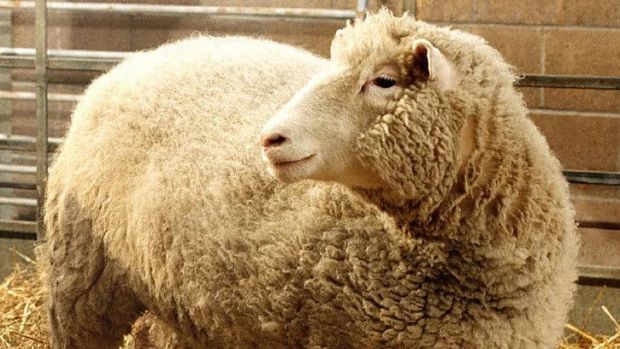February 22 in History
1997- British scientists announce that an adult sheep named Dolly has been successfully cloned
On this day in 1997, a team of British scientists working under the direction of Ian Wilmut at the Roslin Institute near Edinburgh announced the birth of Dolly the sheep, the first clone of an adult mammal.
In what was a major milestone in science, Dolly was born on July 5, 1996 and had three mothers: one provided the egg, another the DNA, and a third carried the cloned embryo to term. She was created using the technique of somatic cell nuclear transfer, where the cell nucleus from an adult cell is transferred into an unfertilized oocyte (developing egg cell) that has had its cell nucleus removed. The hybrid cell is then stimulated to divide by an electric shock, and when it develops into a blastocyst it is implanted in a surrogate mother.
Dolly’s birth dispelled decades of presumption that adult mammals could not be cloned and ignited a debate concerning the many possible uses and misuses of mammalian cloning technology.
The cell used as the donor for the cloning of Dolly was taken from a mammary gland, and the production of a healthy clone, therefore, proved that a cell taken from a specific part of the body could recreate a whole individual. On Dolly’s name, Wilmut stated “Dolly is derived from a mammary gland cell and we couldn’t think of a more impressive pair of glands than Dolly Parton’s
Dolly lived at the Roslin Institute throughout her life and produced several lambs. She was euthanized at the age of six years due to a progressive lung disease. No cause which linked the disease to her cloning was found.
Dolly’s body was preserved and donated by the Roslin Institute in Scotland to the National Museum of Scotland, where it has been regularly exhibited since 2003.
-WIKIPEDIA/ENCL



Comments are closed, but trackbacks and pingbacks are open.